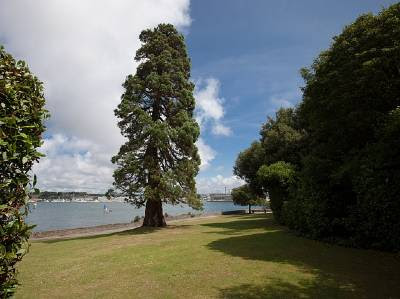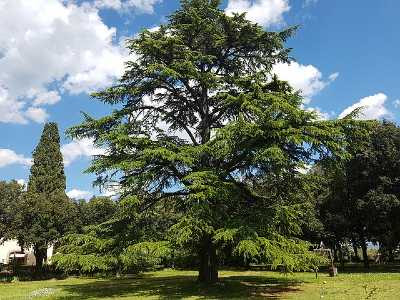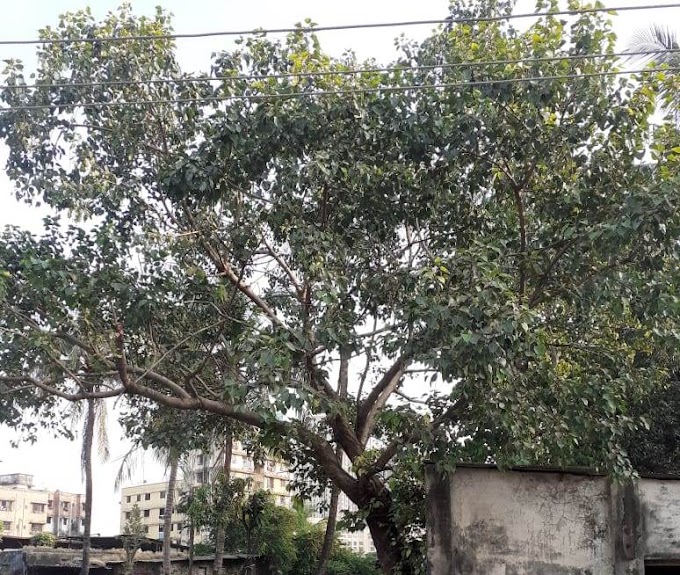Deodar tree
Deodar tree in English, Deodar tree information in English, or Devdar in English is
the information about Cedrus deodara or about Cedar trees. It is also called as
Tree of Gods. Himalayan cedar and Devadar is its Hindi name. Its botanical name
is Cedrus deodara and it belongs Pinaceae (pine) family.
If the Deodar tree is planted properly it will not
require much care. Since these trees are very drought resistant, they do not
require more rain or irrigation. Occasional rainfall is also enough for them.
What is the deodar tree called in English?
Deodar tree is called as Cedrus deodara, the deodar cedar and Himalayan cedar in English. Its botanical name is Cedrus deodara.
Where are deodar trees found?
These trees are evergreen coniferous trees and occurring
at 1,500–3,200 m (4,921–10,499 ft) altitude. Deodar tree is native of western
Himalaya, eastern Afghanistan, and northern Pakistan. Deodar is also the
National tree of Pakistan.
Where are deodar trees
found in India?
Deodar trees are found in Kashmir, Uttarakhand, Sikkim, Arunachal Pradesh, Himachal Pradesh, Darjeeling in India.
What is the meaning of the deodar tree?
Word Deodar is derived from the Sanskrit word “devadaru”.
It means Tree and wood of Gods. This is a sacred tree and it is worshiped as a
divine tree in the Hindu religion.
Are deodar trees deciduous?
The deodar tree is from the Pinaceae family. Deodar
includes both deciduous conifers as well as an evergreen tree.
How big does a deodar cedar get?
Deodar is coniferous, evergreen, and a large tree. It
reaches up to 131–164 ft (40 - 50 meter) height. Sometimes it becomes up to 197
ft (60meter) tall.

Deodar Cedar
And its trunk sized up to 10 ft (3 meters) in diameter.
It contains level branches with conic crown and drooping branchlets.
Deodar tree leaves
Deodar tree leaves are cylindrical, needle-like shape.
1-2 inches (2.5–5 cm) in length. Sometimes they are 3 inches (7 cm) long and
1mm thick.
Why is deodar cedar
losing its needles?
It is the cycle through which all cedar trees are going through. Most conifers has to go through it. Needles which are no longer doing the tree much good, which are old, turn yellow/brown as the tree phases them out. This way they make place for new growth from the tips.

Deodar tree cylindrical leaves
Do Deodar cedars have cones?
Deodar produces male and female cones on same tree as it is a monoecious plant. They produces cones during the summer but they release them in the autumn.
The male cones shed their pollen in autumn. They are 4–6
cm (1.6–2.4 in) long. To release the winged seeds the female cones are
disintegrated when mature (in 12 months). The female cones are 5–9 cm (2.0–3.5
in) broad and 7–13 cm (2.8–5.1 in) long.
Deodar Tree Cultivation
Because of its conical good-looking shape, it is widely
planted and grown as an ornamental tree.
For its nice-looking dropping foliage, it is often planted in large
gardens and parks.
If it is planted in the fall
it won't be needed as much water or sun as it would in the spring.
How do you plant a deodar
tree?
What is the deodar tree called in English?
Deodar tree is called as Cedrus deodara, the deodar cedar and Himalayan cedar in English. Its botanical name is Cedrus deodara.
Where are deodar trees found?
Where are deodar trees found in India?
Deodar trees are found in Kashmir, Uttarakhand, Sikkim, Arunachal Pradesh, Himachal Pradesh, Darjeeling in India.
What is the meaning of the deodar tree?
Are deodar trees deciduous?
How big does a deodar cedar get?
 |
| Deodar Cedar |
Deodar tree leaves
Why is deodar cedar losing its needles?
It is the cycle through which all cedar trees are going through. Most conifers has to go through it. Needles which are no longer doing the tree much good, which are old, turn yellow/brown as the tree phases them out. This way they make place for new growth from the tips.
 |
| Deodar tree cylindrical leaves |
Do Deodar cedars have cones?
Deodar Tree Cultivation
If it is planted in the fall it won't be needed as much water or sun as it would in the spring.
How do you plant a deodar tree?
To plant a deodar plant, the hole should be at least
three times wider than the tree’s root ball. Then add 25 peat and compost or
aged manure to the soil to help it drain.
Then put the root ball in the hole.
Surround the tree with the soil and organic mix. Water the soil thoroughly
after tamping lightly.
What is the best soil for cedar trees?
For Deodar planting, well-drained soil is required. It can grow in many types of soil, including loam, clay, and sand.
How much light do cedar trees need?
Deodar plant can tolerate partial shade but for deodar
tree planting site with full sun is best. They prefer full sun.
How much water does a cedar tree need?
For Deodar planting, well-drained soil is required. It can grow in many types of soil, including loam, clay, and sand.
How much light do cedar trees need?
Deodar plant can tolerate partial shade but for deodar
tree planting site with full sun is best. They prefer full sun.
How much water does a cedar tree need?
In the first few growing seasons, plenty of water should
be given to the deodar plant. Deodar is somewhat drought-resistant. It does not
require more water ones it established.
These plats don’t want wet feet but
need moist soil. Hence check and make sure that your soil where you planting
deodar is offered good drainage.
Temperature and Humidity
Deodar cedar is not a delicate tree. It can heat and
humidity. It has the best tolerance for humidity and heat.
What is the best fertilizer for cedar trees?
Deodar doesn’t need too much fertilization. Too much
nitrogen can cause root burn. Therefor ones in a year are enough.
Before new
growth begins, in the spring months, fertilize the ground around the tree.
How do you trim a cedar tree?
Pruning is not much needed in the case of a deodar tree
as it is a low maintenance tree. It's needed only to remove those branches
which are damaged and have become dead.
Also, to prune diseased branches before
new growth begins in the spring. Cutting too many green branches is easy and it
may lead to the tree's death.
Hence, extreme care should be taken when pruning
is done as cutaway branches may not grow back.
What kind of bugs live in cedar trees?
It is known that deodar cedars are attacked by giant
conifer aphids. They produce honeydew which is a sticky liquid. It makes
everything tacky when it falls on the ground.
To remove the pests or to manage
these aphids, spray with high-pressure water. After removing pests use
insecticidal soap. Apply a systemic insecticide in the spring.
Care should be taken that soil should not be soggy. If
soil does not drain well root rot may occur. If honeydew is present there may
also be spots with sooty mold.
Deodar Cultivars
The northwest species' range in Kashmir and Paktia
Province, Afghanistan is the most cold-tolerant deodar tree. Some selected
species tolerate temperatures down to about −30 °C (−22 °F).
Some cultivars from this region are names as Eiswinter,
Eisregen, 'Kashmir, Karl Fuchs, Shalimar, and Polar Winter.
Eiswinter, Eisregen, Polar Winter, and Karl Fuchs were
selected in Germany from seed collected in Paktia.
Nursery trade selected Kashmir cultivar. While Shalimar is
originated from seeds collected from Shalimar gardens in the Kashmir region of
India in 1964.
The Royal Horticultural Society awarded the Award of Garden
Merit to C. Deodara, Aurea, Feelin, and Blue.
What are the uses of Devadaru tree? or What is the use of
deodar tree?
Deodar tree or Devadaru trees are used in Ayurvedic
medicine. In aromatherapy, Cedar oil is often used because of its aromatic
properties.
Deodar tree bark contains large amounts of taxifolin. Deodar wood
is in great demand as a building material.

Deodar Timber
Deodar use as a Construction material
Deodar timber is durable, rot-resistant, fine, and close
grain having the capability of taking a high polish. Due to these all character
deodar is in great demand as a building material.
Sleepers of trains, furniture, house doors and windows,
cabinets, etc. are also made. Pencils are also made from deodar tree wood.
It is an ideal wood for constructing the well-known
houseboats of Srinagar, Kashmir because of its rot-resistance character.
Deodar wood was used in the construction of religious temples and in
landscaping around the temples. It is well recorded in history.
It was used to construct public buildings, bridges, canals
barracks, and railway cars on a large scale during the British colonial period
in India and Pakistan.
It is durable timber but it is not strong timber. This
timber is brittle in nature and hence it is not for delicate work where
strength is required.
Is Deodar a hardwood?
Deodar is a softwood as conifers are softwoods..
Deodar is not a hardwood. It is not
strong or hard as other softwoods like fir or pine but it is softwood and it is water resistant.
Use of Deodar as an ornamental tree
The deodar tree is also used as an ornamental tree. It is
an evergreen tree. Its conical shape and gracefully drooping branches make it a
favorite ornamental tree.
It is used to line streets. It is also used in parks and
other large gardens as a specimen tree.
Deodar as Ornamental tree in the garden
Deodar tree is fast-growing, drought-tolerant, and
relatively pest-free. For lawn or backyard, these conifers are graceful and
attractive specimens.
Deodar trees require no pruning. It requires only removing
broken or dead branches. These trees provide maintenance-free shade as well as
beauty in the park or garden.
Used in Ayurvedic medicine
The root, bark, wood, and fruit of this tree are used in
medicine. It is used to treat neurological disorder, asthma, pruritus, fever,
wounds. It is recommended to apply its oil in arthritis and headaches.
From its shavings and sawdust, two and a half to four
percent, yield a volatile oil, which is known as 'Himalayan Cedarwood Oil' as
an aroma.
Shavings and sawdust can be treated as firewood when
removed. Cedarwood is also used in Ayurvedic medicines. The oil obtained from
the food distillation is used in skin diseases and hair diseases of sheep and
horses.
Its leaves contain low volatile oil as well as ascorbic
acid. Balm from cedar oil is used in the production of many pain relief
medicines.
It is found that insects avoid this tree. Eying this property of insect repellant the essential oil is used as an insect repellent on the feet of
horses, cattle, and camels.
During storage, it can control the fungal deterioration of
spices because it has antifungal properties. Its stem and outer bark are
astringent.
The deodar tree inner wood is used to make incense because
it has aromatic property. It has a property to distilled into essential
oil.
What is deodar cedar used for?
Deodar wood has antifungal and insect repellent properties.
In Shimla, Kullu, and Kinnaur district of Himachal Pradesh, they made rooms of
deodar wood.
And these rooms are used to store meat and food grains like oats and
wheat.
Deodar wood has a characteristic woody odor.
In the course
of drying out, it may change. In aromatherapy, Cedar oil is often used because
of its aromatic properties.
The color of crude oils is yellowish or darker. It is used
in the manufacturing of household sprays, soap perfumes, insecticides, and
floor polishes. It is used as cleaning oil in microscope work.
In the first few growing seasons, plenty of water should
be given to the deodar plant. Deodar is somewhat drought-resistant. It does not
require more water ones it established.
These plats don’t want wet feet but need moist soil. Hence check and make sure that your soil where you planting deodar is offered good drainage.
These plats don’t want wet feet but need moist soil. Hence check and make sure that your soil where you planting deodar is offered good drainage.
Temperature and Humidity
Deodar cedar is not a delicate tree. It can heat and
humidity. It has the best tolerance for humidity and heat.
What is the best fertilizer for cedar trees?
Deodar doesn’t need too much fertilization. Too much
nitrogen can cause root burn. Therefor ones in a year are enough.
Before new
growth begins, in the spring months, fertilize the ground around the tree.
How do you trim a cedar tree?
Pruning is not much needed in the case of a deodar tree
as it is a low maintenance tree. It's needed only to remove those branches
which are damaged and have become dead.
Also, to prune diseased branches before
new growth begins in the spring. Cutting too many green branches is easy and it
may lead to the tree's death.
Hence, extreme care should be taken when pruning
is done as cutaway branches may not grow back.
What kind of bugs live in cedar trees?
It is known that deodar cedars are attacked by giant
conifer aphids. They produce honeydew which is a sticky liquid. It makes
everything tacky when it falls on the ground.
To remove the pests or to manage
these aphids, spray with high-pressure water. After removing pests use
insecticidal soap. Apply a systemic insecticide in the spring.
A parasitic mushroom honey fungus may develop on the
deodar tree. These parasitic mushrooms can't be controlled with chemicals.
But
it can be controlled by burying a physical barrier, such as a heavy-duty
plastic sheet, in the soil.
Care should be taken that soil should not be soggy. If
soil does not drain well root rot may occur. If honeydew is present there may
also be spots with sooty mold.
Deodar Cultivars
Some cultivars from this region are names as Eiswinter, Eisregen, 'Kashmir, Karl Fuchs, Shalimar, and Polar Winter.
Eiswinter, Eisregen, Polar Winter, and Karl Fuchs were selected in Germany from seed collected in Paktia.
Nursery trade selected Kashmir cultivar. While Shalimar is originated from seeds collected from Shalimar gardens in the Kashmir region of India in 1964.
The Royal Horticultural Society awarded the Award of Garden Merit to C. Deodara, Aurea, Feelin, and Blue.
What are the uses of Devadaru tree? or What is the use of deodar tree?
Deodar tree bark contains large amounts of taxifolin. Deodar wood is in great demand as a building material.
 |
| Deodar Timber |
Deodar use as a Construction material
Sleepers of trains, furniture, house doors and windows, cabinets, etc. are also made. Pencils are also made from deodar tree wood.
It is an ideal wood for constructing the well-known houseboats of Srinagar, Kashmir because of its rot-resistance character.
Deodar wood was used in the construction of religious temples and in landscaping around the temples. It is well recorded in history.
It was used to construct public buildings, bridges, canals barracks, and railway cars on a large scale during the British colonial period in India and Pakistan.
It is durable timber but it is not strong timber. This timber is brittle in nature and hence it is not for delicate work where strength is required.
Is Deodar a hardwood?
Deodar is a softwood as conifers are softwoods..
Deodar is not a hardwood. It is not
strong or hard as other softwoods like fir or pine but it is softwood and it is water resistant.
Use of Deodar as an ornamental tree
It is used to line streets. It is also used in parks and other large gardens as a specimen tree.
Deodar as Ornamental tree in the garden
Deodar trees require no pruning. It requires only removing broken or dead branches. These trees provide maintenance-free shade as well as beauty in the park or garden.
Used in Ayurvedic medicine
From its shavings and sawdust, two and a half to four percent, yield a volatile oil, which is known as 'Himalayan Cedarwood Oil' as an aroma.
Shavings and sawdust can be treated as firewood when removed. Cedarwood is also used in Ayurvedic medicines. The oil obtained from the food distillation is used in skin diseases and hair diseases of sheep and horses.
Its leaves contain low volatile oil as well as ascorbic acid. Balm from cedar oil is used in the production of many pain relief medicines.
It is found that insects avoid this tree. Eying this property of insect repellant the essential oil is used as an insect repellent on the feet of horses, cattle, and camels.
During storage, it can control the fungal deterioration of spices because it has antifungal properties. Its stem and outer bark are astringent.
The deodar tree inner wood is used to make incense because it has aromatic property. It has a property to distilled into essential oil.
What is deodar cedar used for?
And these rooms are used to store meat and food grains like oats and wheat.
In the course of drying out, it may change. In aromatherapy, Cedar oil is often used because of its aromatic properties.
The color of crude oils is yellowish or darker. It is used in the manufacturing of household sprays, soap perfumes, insecticides, and floor polishes. It is used as cleaning oil in microscope work.
Conclusion
Deodar tree is used in Ayurvedic medicine, It is used to make oil. It is planted as an ornamental tree in parks and gardens. It's wood used in building construction and in furniture making. It is a useful tree.Click to Read about Coconut Tree
Click to Read about Gulmohar Tree






0 Comments